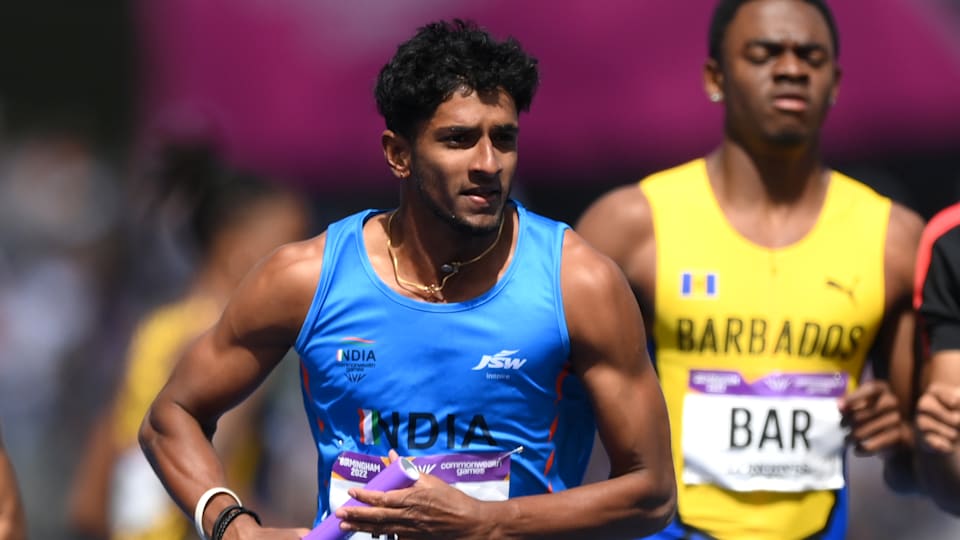Amoj Jacob feels reaching Bahamas early helped India secure Paris 2024 Olympic quota from World Relays

Amoj Jacob was part of the Indian relay quartet that obtained a Paris 2024 Olympics quota at the World Athletics Relays Championship in Nassau, Bahamas.
Asian Games gold medallist Amoj Jacob was part of the Indian men’s 4x400m relay foursome that secured a Paris 2024 Olympics quota at the World Athletics Relays Championship in Nassau, Bahamas earlier in the month.
The Indian team, which also comprised Muhammed Anas Yahiya, Muhammed Ajmal and Arokia Rajiv, clocked 3:03.23 and finished just behind the USA in Olympic Qualifying Round 2 of the World Athletics Relays 2024.
NOCs, however, have the exclusive authority for the representation of their respective countries at the Olympic Games and athletes' participation at the Paris Games depends on their NOC selecting them to represent their delegation at Paris 2024.
Arokia Rajiv came into the team in place of Rajesh Ramesh, who suffered an injury and had to pull out of the men’s 4x400m relay race on the opening day.
The Indian relay team, coached by Jason Dawson of Jamaica, reached the Bahamas a month earlier to acclimatise with the conditions. Amoj Jacob feels it played a major role in helping the team obtain the quota.
Speaking to SAI Media, Jacob, who ran the anchor leg, shed light on the matter and revealed how the team bounced back despite the injury to Rajesh Ramesh.
Q. On how reaching the US and Bahamas early helped the team
Amoj Jacob: The acclimatisation in the Bahamas was very useful. The time zone difference would have made things difficult for us. We were unable to sleep or recover well.
My body took almost a week to adapt to the weather conditions and time difference there. I was sleeping in the afternoon and was unable to sleep at night due to the change in time zone. The entire team encountered the same problem and it was good that we reached the Bahamas a month earlier.
We were all ready for the competition two weeks prior. Then we worked out and got there and qualified. Other teams had reached Nassau just a week ahead of the event.
Q. On the Paris 2024 Olympics quota
Amoj Jacob: Our target was to register a time between 3:00 and 3:10 so that our confidence would be high going into the Paris Olympics. It was unfortunate that Rajesh Ramesh suffered a hamstring injury in round 1. Otherwise, the team could have comfortably clocked below three minutes. Despite the setback, we were able to book our berth for the Olympics. That is highly motivating.
Q. On how the team adapted to Rajesh Ramesh’s absence
Amoj Jacob: It was easy because we were practising together. And we had trained the baton exchange with different combinations. The only concern was to ensure that no one else got injured.
In fact, it is easier than the 100m relay where better coordination is required. So, it was a simple transition for us. Rajiv was with us in the camp for a long time. Being our senior, he knew what to expect.
Q. On managing the pressure of expectations
Amoj Jacob: There is no such pressure now but it was immense pressure during the World Championships final and in the Asian Games. We knew that we had the US in our heats and they mostly record sub-3-minute times. So, our plan was to stay close to them in the race, which would not only improve our time but also help us earn a quota for the Paris Games.